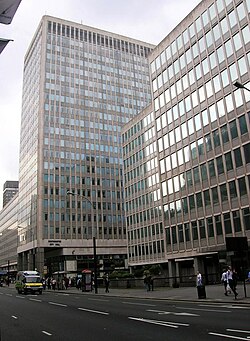 | |
| Agency overview | |
|---|---|
| Formed | 12 June 2003 |
| Dissolved | 9 May 2007 |
| Superseding agency | |
| Jurisdiction | Government of the United Kingdom |
| Minister responsible | |
| Website | https://www.dca.gov.uk |
| This article is part of a series on the |
| Politics of the United Kingdom |
|---|
 |
The Department for Constitutional Affairs (DCA) was a United Kingdom government department. Its creation was announced on 12 June 2003; it took over the functions of the Lord Chancellor's Department. [1] On 28 March 2007 it was announced that the Department for Constitutional Affairs would take control of probation, prisons and prevention of re-offending from the Home Office and be renamed the Ministry of Justice. [2] This took place on 9 May 2007.
Contents
- Departmental executive agencies and public bodies
- Legislation enacted by the department
- Constitutional acts
- Election acts
- See also
- References
- External links

It was primarily responsible for reforms to the constitution, relations with the Channel Islands and Isle of Man and, within England and Wales, it was concerned with the administration of the Courts, legal aid, and the appointment of the judiciary. Other responsibilities included issues relating to human rights, data protection, and freedom of information.
It incorporated the Wales Office and the Scotland Office, but those offices remained the overall responsibility of the Secretary of State for Wales and Secretary of State for Scotland, respectively.
After the 2005 general election, it gained additional responsibilities for coroners and conduct of local government elections in England. [3]

